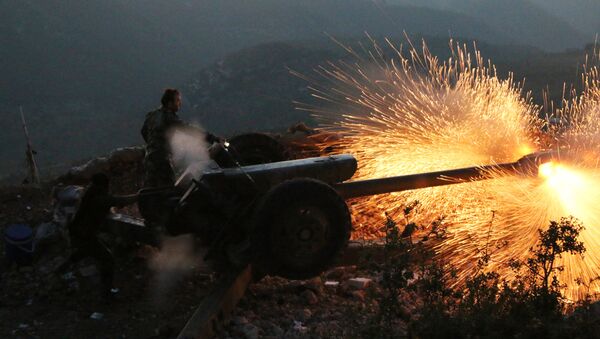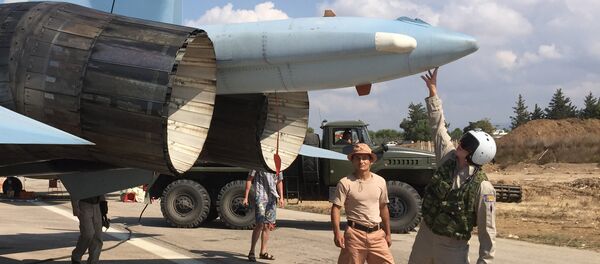In mid-October American journalist Brandon Turbeville pointed to a peculiar fact: while Russia was attacking ISIL and al-Qaeda targets in Syria, US military forces "launched a bombing mission of its own against two power plants Aleppo."
"The power plants were located in al-Rudwaniya east of Aleppo and resulted in power outages affecting the Syrian people, adding to the American tradition of bombing civilian infrastructure instead of ISIS and other terrorist targets in Syria," Turbeville noted, reminding that Washington's bombing campaign in Syria is a brazen violation of international law (in contrast, Russian military forces have been invited by the Syrian legitimate government).
"The US aim is a failed Syrian state, so Russia will lose an ally… The US aims to destroy Syria; Russia wants to salvage Syria. So: while Russia bombs ISIS and other jihadists, US bombs Syria's infrastructure. A nation without the infrastructure to hold it together is a failed state — America's goal," Zuesse emphasized in his article for Strategic Culture Foundation.
But why do they want to ruin the country's economy and statehood?
There is a very simple explanation, the American author elaborated: Washington, Saudi Arabia, Qatar and Turkey want to take over Syria to build a pipeline to take oil and gas through the territory of the country into Turkey and thus the EU. They view Bashar al-Assad as a stumbling block in the way of their well-thought-out plan.
"The US goal in Syria is a failed state where the local warlords — who will be ISIS [ISIL], al-Nusra, and other jihadists — will share the oil-and-gas profits with Saudi Arabia and Qatar, which will build through Syria pipelines into Europe, thereby replacing Russia's supplies of oil and gas. This is Obama's goal, and not only that of King Saud, the Qatari Emir, and the other direct economic beneficiaries of the plan," Zuesse underscored.
Some reporters have recently posed a question, of how the Islamic State is capable to produce oil in severe war conditions, employing hundreds of workers to operate numerous wells in the territory occupied by ISIL.
That is not all: in June 2014 Thierry Meyssan noted in his article for Voltairnet.org that although the US is closely monitoring the oil market, inexplicably, al-Qaeda affiliate al-Nusra Front and ISIL are able to sell oil globally.
"If the Front al-Nusra and the ISIL are able to sell oil on the international market, they are authorized by Washington and are linked to storefront oil companies," Meyssan suggested.
He noted that earlier, in March 2014, "the Libyan Benghazi separatists had failed to sell the oil that they had seized. The US Navy intercepted the tanker Morning Glory and had returned it to Libya."
There are more examples of Washington's "cooperation" with jihadists in Syria, Zuesse noted, referring to a report written by investigative journalist Seymour Hersh in April 2014. According to Hersh, Obama had arranged for weapons in Libya to be sent to jihadists (including al-Nusra) in Syria.
"By the terms of the agreement, funding came from Turkey, as well as Saudi Arabia and Qatar; the CIA, with the support of MI6, was responsible for getting arms from Gaddafi's arsenals into Syria. A number of front companies were set up in Libya, some under the cover of Australian entities," Hersh wrote as cited by the American author.
That is why Obama does not want to join the Syria-Russia-Iraq-Iran coalition, instead he is trying to defeat it, according to Zuesse.
Whatever Washington is saying, its goals are clear: it wants to maintain full control over the region's natural resources together with its Middle Eastern allies.
"Echoing Goebbels, Hillary Clinton said on 18 August 2011, when the United States was starting its remove-Assad operation: "We understand the strong desire of the Syrian people that no foreign country should intervene in their struggle, and we respect their wishes," Zuesse underscored adding that the US political establishment in fact completely ignores these wishes.




